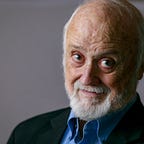Some countries did much better in combating the pandemic’s first wave.
There are many reasons why one country might have a much lower death rate during the pandemic than a neighbor. One country might resist spending more on preparations, or delay taking action for longer. If one were comparing a European country to the United States, one might wonder about delays in seeking medical care, given so many uninsured U.S. residents compared to the European standard of covering basic health care for all.
Once one corrects for population differences, the size and time course of the pandemic looks very similar in Germany and Denmark. They did something right that other European countries did not. South Korea did far better than any European or American country.
There is nothing subtle about these differences between countries; some European countries saved three in four, or even nine in ten, compared to the worst countries. In the U.S., two out of three deaths might have been prevented if we had just done whatever Germany did; decision making at the top obviously differed. Angela Merkel was a physical chemistry Ph.D. before becoming a politician; the U.S. elected an amateur.
I cannot yet tell you what factors (date contact tracing began to isolate possible carriers; date schools closed and large gatherings were banned; date stay-at-home began; date hospital overflows began) made such big differences. The epidemiologists will shortly begin publishing their analyses and models, hoping to understand the subject in time for us to prepare for a second pandemic wave and get through it without major damage to the economy recurring.
. . .
William H. Calvin, Ph.D., is a professor emeritus at the University of Washington School of Medicine in Seattle and the president of the CO2Foundation.org. His 17th book, Extreme Weather and What to Do About It, features a critique of the current climate message; describes five extreme weather shifts that occurred a decade ago; gives a justification for what makes climate an emergency now; considers design criteria for how to take the 50% excess of CO2 out of circulation; and offers a proposal for how to get started with a “Manhattan Project 2.0.”
